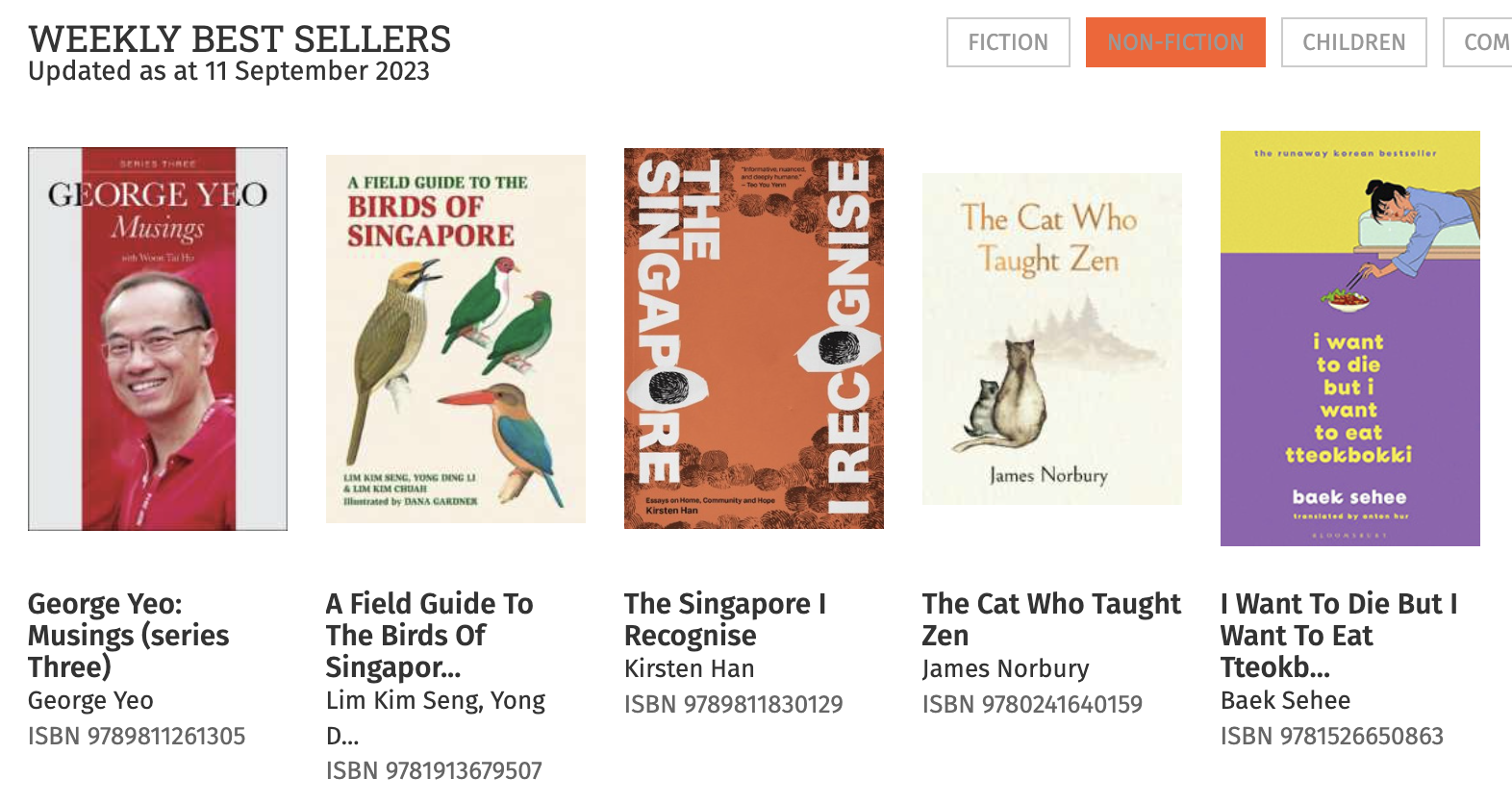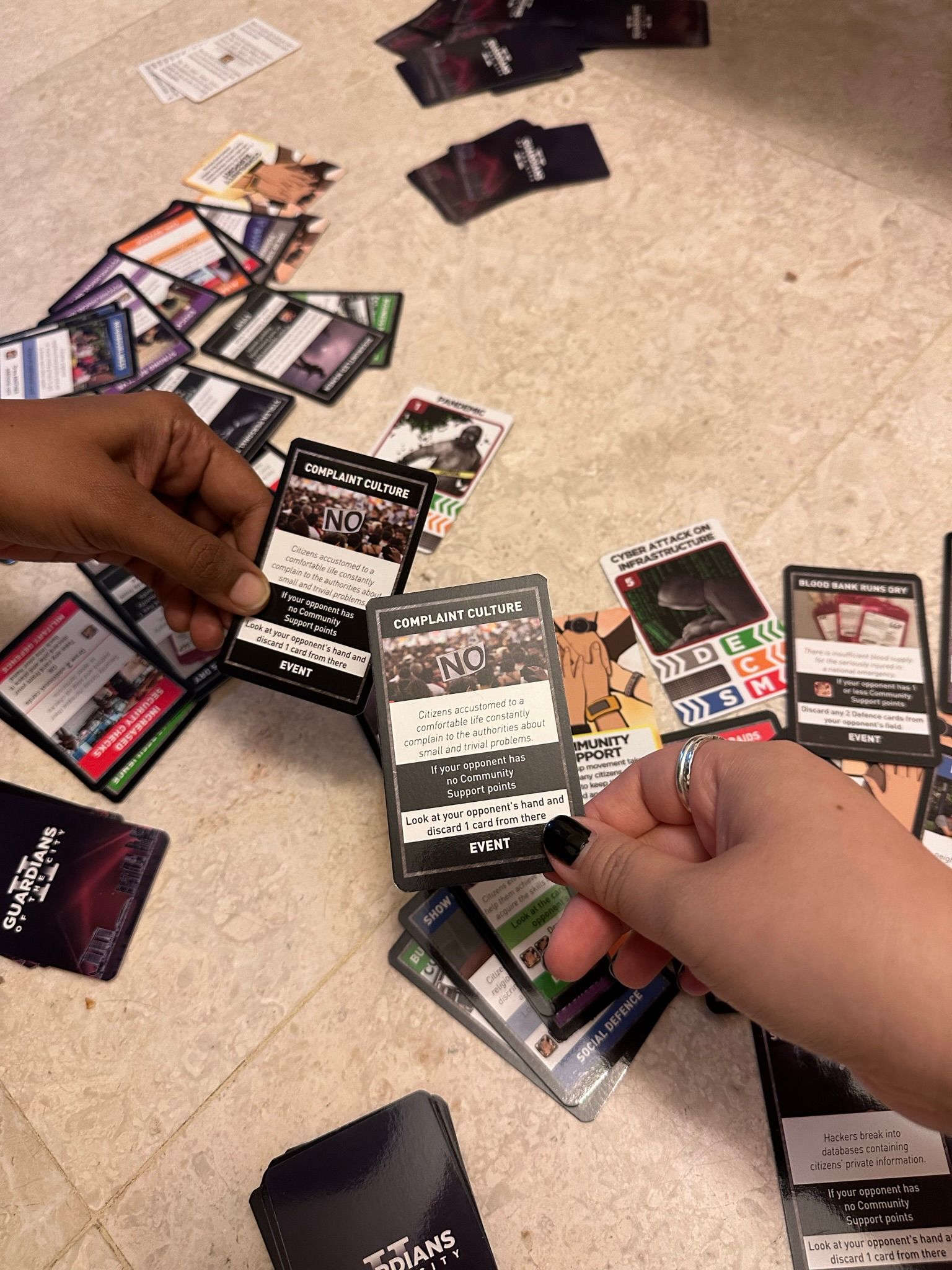My personal blog seems to be turning into a space to write about writing these days.
Counting the cost of flourishing in Singapore
The first Minimum Income Standards report, focused on elderly persons and older single adults, was published in 2019. Another report, this time focused on working-age households, followed in 2021. These important reports provided a frame within which to consider what it means to live a flourishing life in Singapore... and how much it might cost to do that.
Since then, we've experienced the Covid pandemic—which has been unpleasant for most but devastating for some—as well as 8.6% inflation between 2020 and 2022. The team have thus uprated the MIS budgets to:
- $3,369 for a single parent with a 2- to 6-year-old child
- $6,693 for a couple with two kids, one aged 7–12, the other 13–18 years old.
- $1,492 for a single person above 65 years of age
The report also proposes a living wage. Based on a family with two working adults and two kids under 19, the work inceome that each parent needs to receive to meet basic needs is $2,990.

While the government did announce big-sounding packages during the pandemic to support Singaporeans who were struggling, lots of our social welfare schemes are either not reaching enough people, or not providing enough to really help them meet their basic needs. As this year's report notes:
In response to the Covid-19 pandemic, governments around the world, including Singapore, introduced unprecedented emergency budgets in the last few years to protect jobs, businesses and household incomes. While providing immediate relief, these temporary measures have not loosened the ideological resistance towards social protection that had contributed to the precarities and inequalities so starkly exposed in 2020.
I attended the launch of the report on Thursday evening. As I listened to the presentations and the Q&A, my thoughts drifted to some of the people I've been in touch with recently, working class people who have, at some point in their lives, been in conflict with the law, or have close family members who are still in prison. They experience such difficulty with employment, particularly jobs that will actually pay them enough to survive in today's Singapore. There are current costs, like utility bills and groceries, as well as debts that have mounted over an extended period of struggling to make ends meet. There are worries about healthcare costs if someone in the family gets sick. I hear a similar sentiment, expressed in different languages, from multiple people: I feel like I can't breathe. The need for money that they don't have is constantly growing, even as options to get more money seem extremely limited.
The Minimum Income Standard is calculated for people to not only be able to breathe, but live decently. Yet there are so many in Singapore right now who feel like they're suffocating. Applying for financial aid from the state is in itself a costly exercise, and by that I'm not referring to monetary cost, but the mental and emotional cost. While the Minimum Income Standard recognises that "basic needs" go beyond subsistence, and include things like social participation and dignity, the current process of applying for financial aid often feels, to those who have to go through the process, like the exact opposite of dignity.
The Minimum Income Standard is important because it prompts us to think about what it means to be able to flourish, what it means to be able to participate in society, what it means to fill needs that aren't just the most basic for survival. Many of us are fortunate to already have enough, even if we might still have our anxieties and fears about the future. But there are so many who are nowhere near this minimum, and there is so much more we have to do as a people to make sure that we all have the opportunity to meet our basic needs and lead full lives.
President Tharman and race
Tharman Shanmugaratnam has been inaugurated as President of the Republic of Singapore. In his speech, Prime Minister Lee Hsien Loong said that "this election has shown that when it comes to voting, race is a smaller factor now than it used to be." Three days before the inauguration, Deputy Prime Minister Heng Swee Keat (yes, he is still around and yes, he is still DPM) was asked if this presidential election result shows that race isn't so much an issue anymore. This is what he said:
I will say that there is a difference in the role of the Elected President and the Prime Minister because as I said, one is custodial, and one is executive. I will see it as a very positive sign, that the fact that he is an Indian did not stop people from electing the best person.
As to whether you can draw a conclusion about what happens in the general election, what happens more broadly, I will say that it is too early, but it is certainly a very, very positive sign. Will we ever have a non-Chinese as a Prime Minister? I will say it will come one day, because Singapore society is growing, maturing and it will come one day. As to when that day will be, I cannot tell; none of us can predict the future. But I see that as a very positive sign.
It's just so outrageous when the PAP thinks they can take it upon themselves to proclaim what Singaporeans are or aren't ready for. One difference that Heng didn't mention is that Singaporeans voted directly for the president, but we don't get to vote directly for our prime minister. In general elections, Singaporeans vote for candidates from political parties, and it is the party that chooses its leader, who becomes Prime Minister. As long as the PAP is in power, is it the PAP who chooses the prime minister, so it's really about whether the PAP is ready to back a non-Chinese party leader or not.
I don't care to be told by the guy who couldn't even articulate his East Coast Plan about what I'm ready or not ready for.
Got some more...
✊🏼 The Transformative Justice Collective has published the following statement in solidarity with Subhas, whose case was covered in last week's newsletter:
The nanny state continues to insist on only superficial, performative expressions of “racial harmony” that align with the current racial order in Singapore – these mask deep undercurrents of discrimination, alienation and pain in ethnic minority communities.
Any law that seeks to regulate speech around race and religion should have a protective impulse towards the most marginalised and minoritised groups, rather than be utilised to punish minorities who speak up against racial oppression.
Many of Subhas’ criticisms were directed at the state and its systems, rather than at individuals of any particular race. Many have pointed out the contrast between how Subhas’ actions are being punished, versus the case where a Chinese man who posted repeatedly about wanting to commit genocide and gun down Muslims received probation. Compared to attacks against a person or a community, the law should have a much higher threshold for critique of powerful systems. Instead, here, what we see is a particular oversensitivity to criticism of institutions like the police, which the people have both the right and responsibility to scrutinise closely.

On my radar
Learning about the history of cats!


